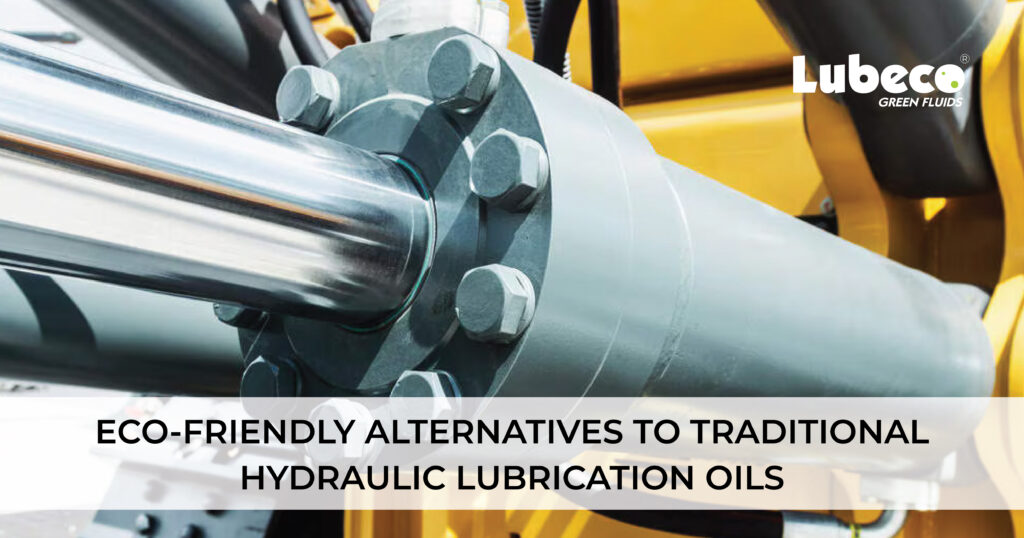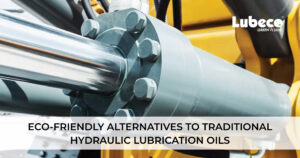Hydraulic lubrication oils play a crucial role in machinery and industrial applications, ensuring seamless operation, reducing friction, and preventing wear and tear.
However, traditional hydraulic oils often pose environmental concerns due to their petroleum-based composition, toxicity, and potential for spills that can contaminate ecosystems.
In response, eco-friendly alternatives are emerging as viable solutions that offer sustainability without compromising performance.
Let’s explore these alternatives, their benefits, and their impact on industries aiming for greener operations.
The Environmental Concerns of Traditional Hydraulic Oils
Conventional hydraulic lubrication oils are primarily derived from petroleum, making them non-biodegradable and harmful to the environment. Some of the key issues include:
- Toxicity: Petroleum-based oils contain harmful additives and chemicals that can be toxic to aquatic life and soil organisms.
- Non-Renewability: These oils rely on fossil fuels, a finite resource that contributes to carbon emissions and climate change.
- Spills and Leaks: Accidental leaks and spills can contaminate water bodies and soil, leading to long-term environmental damage.
- Disposal Challenges: The disposal of used hydraulic oil is a significant concern, requiring specialized treatment to prevent pollution.
What Are Eco-Friendly Hydraulic Lubrication Oils?
Eco-friendly hydraulic oils are formulated from renewable and biodegradable sources, offering reduced environmental impact while maintaining or even enhancing performance. These alternatives include:
- Biodegradable Hydraulic Oils (BHO)
- Vegetable-Based Hydraulic Oils
- Synthetic Ester-Based Hydraulic Oils
- Water-Based Hydraulic Fluids
- Polyalkylene Glycol (PAG)-Based Hydraulic Oils
1. Biodegradable Hydraulic Oils (BHO)
Biodegradable hydraulic oils are designed to break down naturally in the environment, reducing the risk of contamination. They typically fall into two categories:
- Readily Biodegradable: These break down quickly (typically within 28 days) and pose minimal environmental hazards.
- Inherently Biodegradable: These degrade over a longer period but still offer reduced environmental impact compared to petroleum-based oils.
Advantages:
- Lower toxicity to plants and animals
- Compliance with stringent environmental regulations
- Improved safety in sensitive applications such as forestry and marine operations
2. Vegetable-Based Hydraulic Oils
Vegetable-based oils, derived from sources like rapeseed, sunflower, and soybean, offer a renewable and biodegradable alternative. These oils are chemically modified to enhance oxidative stability and viscosity.
Advantages:
- Renewable and sustainable
- Naturally biodegradable
- Low toxicity
- Excellent lubricity, reducing wear and tear
Challenges:
- Prone to oxidation, leading to shorter service life
- Limited performance in extreme temperatures
3. Synthetic Ester-Based Hydraulic Oils
Synthetic esters are chemically engineered from natural or synthetic sources to provide superior lubrication and environmental benefits. They offer enhanced thermal stability and oxidation resistance compared to vegetable oils.
Advantages:
- High thermal and oxidative stability
- Excellent biodegradability
- Compatible with a wide range of materials
- Improved viscosity index for better performance in varying temperatures
Challenges:
- Higher production costs
- Potential compatibility issues with certain seals and materials
4. Water-Based Hydraulic Fluids
Water-based hydraulic fluids use water as the primary component, reducing reliance on petroleum-based oils. These fluids are often used in fire-sensitive environments due to their high fire resistance.
Advantages:
- Non-toxic and environmentally friendly
- High fire resistance
- Cost-effective compared to synthetic alternatives
Challenges:
- Limited lubrication properties
- Higher corrosion risk if not properly formulated
- Requires advanced system compatibility
5. Polyalkylene Glycol (PAG)-Based Hydraulic Oils
PAG-based hydraulic oils are synthetic lubricants known for their high biodegradability and excellent lubrication properties. These oils are commonly used in environmentally sensitive applications.
Advantages:
- Excellent thermal stability
- High biodegradability
- Low toxicity
- Suitable for high-temperature applications
Challenges:
- Expensive compared to conventional oils
- May not be compatible with some seal materials
The Benefits of Switching to Eco-Friendly Hydraulic Oils
Industries that transition to eco-friendly hydraulic oils can experience numerous advantages beyond environmental sustainability. Some key benefits include:
- Regulatory Compliance: Many governments and industries are imposing strict environmental regulations, and using biodegradable oils helps companies stay compliant.
- Reduced Environmental Footprint: These alternatives minimize soil and water contamination, contributing to a cleaner ecosystem.
- Improved Workplace Safety: Lower toxicity and fire resistance enhance worker safety.
- Enhanced Equipment Longevity: Some eco-friendly oils offer better lubrication, reducing wear and maintenance costs.
- Sustainability and Corporate Social Responsibility (CSR): Companies that adopt green practices can strengthen their brand image and appeal to environmentally conscious customers.
Choosing the Right Eco-Friendly Hydraulic Oil
When selecting an eco-friendly hydraulic oil, consider the following factors:
- Application Requirements: Ensure compatibility with your machinery and operating conditions.
- Biodegradability and Toxicity: Opt for readily biodegradable and low-toxicity formulations.
- Thermal and Oxidative Stability: Choose an oil that offers a long service life and resistance to oxidation.
- Viscosity and Lubrication Performance: Ensure the oil provides sufficient lubrication and operates efficiently in varying temperatures.
- Regulatory Certifications: Look for certifications such as ISO 15380, and OECD biodegradability ratings.
To Conclude
Eco-friendly alternatives to traditional hydraulic lubrication oils are gaining momentum as industries strive for sustainability and environmental responsibility.
Whether through biodegradable oils, vegetable-based lubricants, or synthetic esters, these solutions offer viable replacements that enhance performance while reducing ecological impact.
By making the switch, industries can not only comply with environmental regulations but also contribute to a greener and more sustainable future.
FAQ’s
1. Are biodegradable hydraulic oils as effective as traditional oils?
Yes, many biodegradable hydraulic oils offer comparable or superior lubrication and thermal stability compared to traditional petroleum-based oils.
2. What industries benefit most from eco-friendly hydraulic oils?
Industries such as agriculture, forestry, marine, and construction benefit greatly due to stringent environmental regulations and the need for sustainability.
3. Do eco-friendly hydraulic oils require special storage conditions?
Some biodegradable oils may have shorter shelf lives and require storage away from extreme temperatures and moisture to maintain stability.
4. Are eco-friendly hydraulic oils more expensive than traditional oils?
While some options, like synthetic esters, may be more expensive, they often result in long-term savings due to reduced maintenance and lower environmental fines.
5. How can I ensure compatibility with my equipment?
Check manufacturer recommendations and conduct compatibility tests with seals, hoses, and materials before switching to eco-friendly hydraulic oils.










